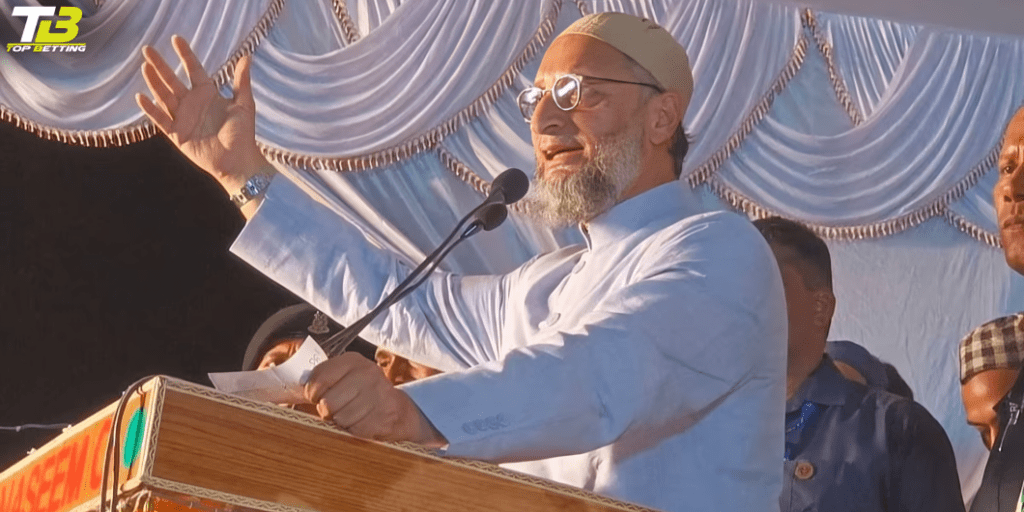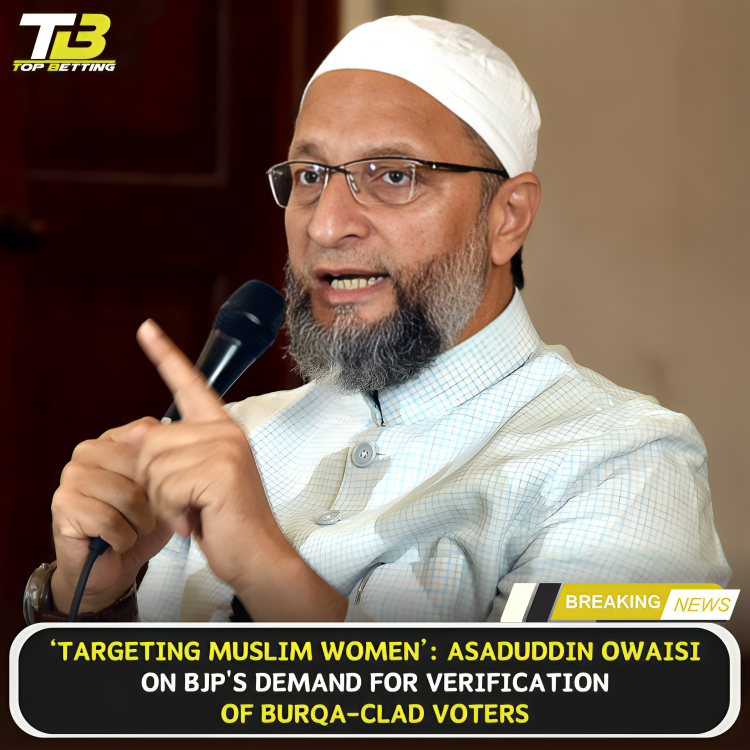
Owaisi Criticizes BJP Burqa Voter
Introduction
Asaduddin Owaisi, the leader of the All India Majlis-e-Ittehadul Muslimeen (AIMIM), has voiced his criticism of the Bharatiya Janata Party’s (BJP) demand for the verification of burqa-clad voters, arguing that it specifically targets Muslim women. In a series of tweets, Owaisi expressed his concerns, stating that the BJP’s move is an attempt to intimidate and suppress the voices of Muslim women. He went on to suggest that this demand reflects the party’s bias against the Muslim community, questioning why BJP leaders have an issue with women who choose to wear the burqa.
Asaduddin Owaisi highlighted that the Indian Constitution guarantees every citizen the right to vote, and he views these demands for specific verification as a violation of this fundamental right. His strong opposition to the BJP’s stance has sparked significant attention and reignited the debate on religious rights and political discrimination in the country.
Understanding the Demand for Verification of Burqa-Clad Voters
The demand for the verification of burqa-clad voters has raised several questions and concerns. Supporters argue that it is necessary to ensure the integrity of the electoral process and prevent any potential misuse or impersonation. They believe that voter identification is crucial in maintaining a fair and transparent democracy. However, critics argue that singling out burqa-clad voters for verification raises issues of discrimination and religious profiling. They contend that it unfairly targets Muslim women, infringing upon their right to practice their religion freely and participate in the democratic process without fear of intimidation or harassment.
Asaduddin Owaisi’s Perspective on the Demand
Asaduddin Owaisi’s opposition to the demand for the verification of burqa-clad voters is rooted in his belief that it is a direct attack on Muslim women. He asserts that the demand undermines their autonomy and choice to wear the burqa as an expression of their faith. Owaisi argues that the BJP’s insistence on verification is not driven by concerns over electoral integrity but rather by a biased agenda that seeks to marginalize and suppress the Muslim community. He highlights the significance of the right to vote as a cornerstone of democracy and asserts that it should be protected without any discriminatory practices that target specific religious or ethnic groups.
The BJP’s Rationale behind the Demand
The BJP argues that the demand for verification of burqa-clad voters is necessary to prevent voter fraud and maintain the sanctity of the electoral process. They contend that identity verification is an essential aspect of ensuring free and fair elections, as it helps to prevent impersonation and manipulation of the voting system. The party believes that implementing specific verification measures for burqa-clad voters is a reasonable step towards achieving this goal. However, critics argue that existing identification measures, such as voter ID cards, are sufficient and that singling out Muslim women for additional verification is unnecessary and discriminatory.
Criticisms of the Demand
The demand for the verification of burqa-clad voters has faced widespread criticism from various quarters. Many argue that it reinforces stereotypes and perpetuates Islamophobia by targeting Muslim women based on their religious attire. Critics view the demand as an attempt to further marginalize and stigmatize the already marginalized Muslim community, particularly Muslim women who choose to wear the burqa. They argue that it infringes upon their right to religious freedom and expression. Additionally, some critics contend that the demand is politically motivated, aimed at suppressing the votes of a specific religious group for partisan gains.
Impact on Muslim Women’s Rights and Freedom of Expression
The demand for the verification of burqa-clad voters raises concerns about the impact on Muslim women’s rights and freedom of expression. By singling out this specific group for additional scrutiny, it creates a climate of fear and intimidation. Muslim women may feel compelled to remove their burqas or alter their appearance to avoid scrutiny, thereby compromising their religious beliefs and freedom of expression. This demand also has the potential to discourage Muslim women from participating in the electoral process, leading to their exclusion from political decision-making and representation.
Similarities and Differences with Voter Verification Practices in Other Countries
Voter verification practices vary across countries, with some implementing stringent measures to ensure electoral integrity, while others adopt more relaxed approaches. In some countries, voter identification is mandatory, while in others, it is not required or is only requested on a random basis. While the demand for the verification of burqa-clad voters may be seen as unique to India, it reflects broader debates surrounding the balance between electoral integrity and individual rights. It is important to analyze and understand the specific context of each country’s voter verification practices to inform discussions on the demand in India.
The Role of Social Media in Shaping Public Opinion
Social media plays a significant role in shaping public opinion and influencing the narrative surrounding the demand for the verification of burqa-clad voters. It has provided a platform for various voices, including politicians, activists, and citizens, to express their views and engage in public discourse. The debate on social media has allowed for a wider dissemination of information, enabling individuals to gain different perspectives and form their own opinions. However, it has also amplified polarization and the spread of misinformation, making it crucial for users to critically evaluate the information they encounter.
Legal Considerations and Implications
The demand for the verification of burqa-clad voters raises legal considerations and implications. It is essential to examine the constitutional rights and protections afforded to citizens, including the right to vote and the freedom of religion. Any policy or practice that infringes upon these rights must be carefully evaluated to ensure compliance with the principles of justice and equality. Legal experts and scholars can contribute to the ongoing discourse by analyzing the legality of the demand and proposing recommendations that uphold both electoral integrity and individual rights.
Conclusion and Potential Implications for Future Elections

In conclusion, the demand for the verification of burqa-clad voters, as criticized by Asaduddin Owaisi, raises significant concerns about the targeting of Muslim women and potential violations of their rights. The debate surrounding this demand highlights the need for a balanced approach that upholds both electoral integrity and individual rights, without disproportionately impacting any specific religious or ethnic group.
As India moves forward, it is essential to consider the potential implications on future elections and strive for inclusive practices that promote democratic values and respect for religious diversity. Only by fostering an environment that encourages the participation of all citizens can India truly strengthen its democracy and ensure equal rights for all.











